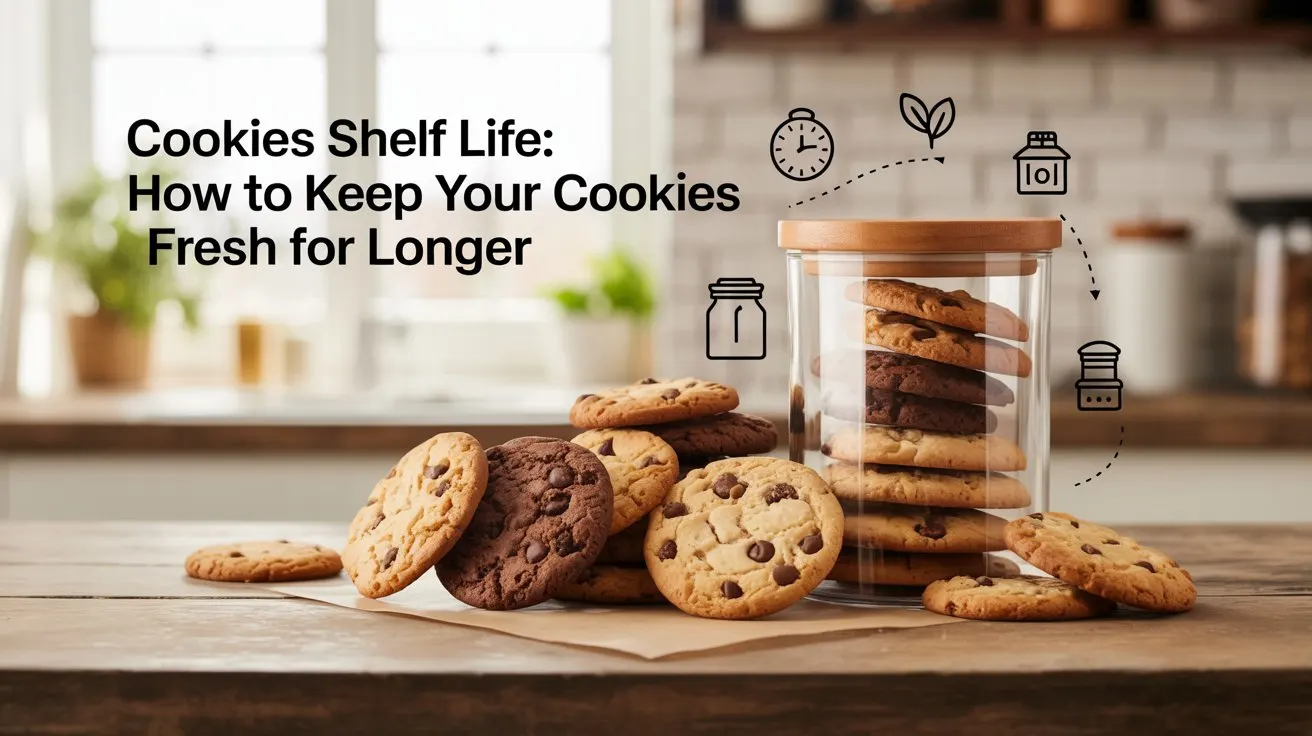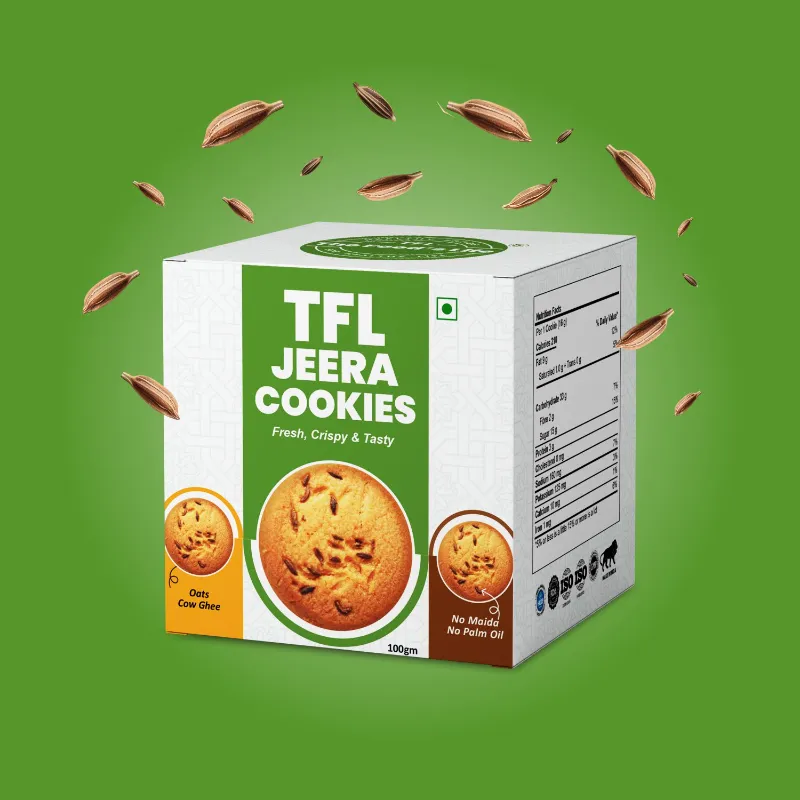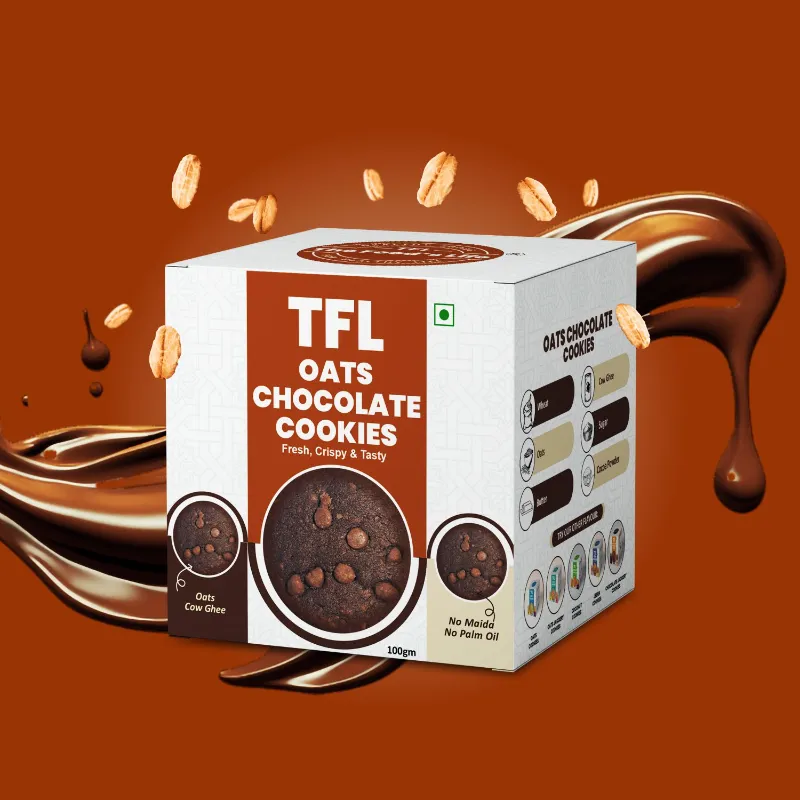Knowing the ways your cookies will last is important for keeping your baked goods fresh and delciious. The shelf life of a cookie will vary from cookie to cookie. Based on ingredients, storage methods, and type of cookie, cookies with long shelf life, including cookies made from high-fat content or preservatives, will be fine for a long period when stored properly, and for other cookies their freshness will last a few days.
If you want to make your cookies last as long as possible, storage is very important. Airtight containers are an excellent way to lock in the flavor of your cookies as they will last longer and keep the same texture after eating it. Store them in a cool, dry place away from moisture and heat to keep it fresher longer. If you would like to increase the shelf life of a cookie further, freezing can do the job too. Freezing your cookies will lock in freshness for up to three months without losing any flavors or texture.
Introduction: The Importance of Understanding Cookies Shelf Life
Knowing the shelf life of cookies is important for maintaining freshness and flavor. The more time a cookie can stay fresh, the better it is to eat. Cookies have different shelf lives based on ingredients, storage conditions, and packaging. By determining how long cookies will last, you can arrange best storage for your cookies so you can eat them at their peak quality.
Why Cookies Shelf Life Matters for Your Baked Goods
Cookies with a longer shelf life are an attractive option for bakers and consumers who prefer to enjoy their baked goods over time. As mentioned above shelf life is important because it calculates how long cookies will remain fresh and flavorful. Cookies can maintain their freshness and flavor longer given the right ingredients and storage conditions. Cookies with higher fat and moisture content have a longer shelf life than cookies with less moisture will dry out faster.
How Shelf Life Impacts Taste and Texture
The shelf life of the cookie affects its taste and texture. Over time the cookie may dry out and become stale and/or hard. If not properly stored, it can be challenging to maintain the ideal taste and texture of a cookie, since it can easily shift from chewy, to dry, depending whether it absorbs or loses moisture. For example, if there is humidity in the air it may soften the crisp cookie. In general, cookies with longer shelf life tend to have more consistent texture upon storage and keep either their crispness and/or softness in airtight containers.
The Role of Storage in Extending Freshness
Proper storage can significantly add to the shelf life of cookies. Cookies should be stored in an airtight container to keep them as fresh as possible, avoiding moisture loss, and keeping your cookie fresher, for longer. If you maintain a cool, dry place for cookies, you can prevent them from drying out too rapidly, or staying too wet. If you intend to store cookies for longer, freezing is a great choice. Cookies can be frozen up to three months and avoid any change to tastes or effects, even after some time, for maximum cookie freshness.
Factors Affecting the Shelf Life of a Cookie
There are several factors that influence the shelf life of a cookie and how long it will remain fresh, flavorful and edible. Ingredient choice, storage, and environmental factors (temperature, humidity) can all play a large role in whether a cookie's shelf life is extended or reduced.
- Storage Conditions - Cookies that are stored in a cool, dry place in an airtight container will often last much longer than cookies that are stored in a moist container or exposed to air. Moisture and air can shorten the shelf life of a cookie and cause it to stale quicker.
- Ingredients - Fat-type ingredients (butter or oil) can help preserve cookies, and certain other ingredients can lead to spoilage.
- Baking Time and Temperature - Baking cookies too long or too short will impact the cookies shelf life and texture. In general, cookies that are baked well - (not underdone or overbaked) will last longer.
Ingredients That Influence Shelf Life
Some ingredients have a significant effect on the shelf life of a cookie. The proper or right combination of ingredients is important if you want to maximize shelf life in your cookies.
- Sugar: Sugar acts as a natural preservative ingredient because it binds moisture; this allows baked cookies to retain their texture.
- Fats (Butter, Oil): Fats add flavor to cookies but also keeps cookies from drying out. This helps with a longer shelf life due to the moisture retention in the cookie.
- Eggs: Eggs act as a binder within the ingredients, and have a structure in cookies. However, cookie varieties do contain egg-free cookies that are sometimes more moist and spoil quicker than cookies containing egg.
- Flour Types: Refined flours are typically longer shelf life, however, they generally have little nutritional value. Whole grain flours have a shorter shelf life than refined flours due to their higher fat content
How Moisture and Texture Affect Freshness
Moisture content is key when it comes to freshness.
- Moisture Retention: High moisture cookies made with fruits or syrups usually have a shorter shelf life because they can get soggy or moldy quicker, but cookies that are drier, like shortbreads or biscotti, can last longer because of less moisture retention in the cookie.
- Crisp Cookies vs. Soft Cookies: Crispy cookies will usually accumulate a longer shelf life than soft cookies. Soft cookies dry out quicker and change into stale cookies before the standard (like crispy cookies) while crisp cookies will keep their structure longer in proper storage.
- Moisture Absorption: If cookies are stored incorrectly and not protected from humidity, they will absorb moisture from humid air causing them to lose their crunch and become chewy or soggy.
The Environmental Impact on Cookie Freshness
Environmental factors influence the freshness of cookies.
- Temperature: Cookies stored in hot temperatures may spoil, melt, or soften. Cookies stored in cold temperatures may harden and lack flavor. At room temperature (68 to 72 degrees F) cookies are best stored.
- Humidity: Humidity could cause cookies to lose their crispiness or watery. Store cookies where the air is dry to avoid cookies absorbing moisture from the air.
- Exposed Air: Although air allows cookies to breath, air may expose cookies to the environment causing them to stale. When they have a long shelf life always try to store cookies in an airtight container.
Proven Techniques for Extending the Shelf Life of Cookies
When it comes to preserving cookies' freshness, simply using the right storage techniques will go a long way in extending their shelf life. We have compiled storage tips that range from storing cookies in an airtight container to freezing cookies for long-term storage to maximize the freshness of your finished product.
- Airtight Containers: Keeping cookies fresh in an airtight container is one of the easiest and more effective ways of keeping cookies fresher for longer. An airtight containers sealed environment keeps moisture out, preventing your cookies from becoming stale.
- Freezing: Freezing cookies is a good way to store cookies for weeks and even months. Freezing is a perfectly good method if you want to bake in advance and have fresh-baked cookies down the track.
- Vacuum Sealing: Vacuum sealing cookies will eliminate the air in the package, preventing the growth of bacteria and mold even further extending the shelf life of your cookies.
Storing Cookies in Airtight Containers
One of the best ways to keep cookies fresh, is to store them in an airtight container for a long period of time. Here's why:
- Prevents Exposure to Moisture: The worst thing that could happen to cookies in the container is for them to become stuck or soggy. This is usually a result of exposure to moisture, which can then lead to sogginess or an undesirable loss of crispiness. Store your cookies in an airtight container, to reduce the exposure to moisture!
- Maintains Flavor Composition: Cookies exposed to air can lose flavor. If you want to keep cookies tasting like you just made them, store them in an airtight container.
- Ideal Storage Conditions: Cookies stored in an airtight container at room temperature are subject to different storage periods based on the type of cookie. For example, you may not need to consume a fully store bought cookie before a week is up, but, if you are on a traditional, homemade, cookie journey, they may have stated to enjoy the cookies for up to one week.
The Benefits of Freezing Cookies for Longer Freshness
One of the best ways to promote cookie freshness for an extended period of time is to freeze them. Here are some of the benefits of doing so:
- More Long-Term Storage: Freezing cookies is one of the best ways to keep the texture and flavor freshness of cookies for a period of up to 3 months. Freezing cookies is great for those who wish to pi; heat cookies before serving, or for anyone looking to store cookies unwrapped.
- Prevents Spoilage: Yep! freezing cookies preserves the cookies' freshness and prevents spoilage in its entirety. Freezing cookies prevents bacteria and mold growth. No food, allows for growth.
- Preserves Texture: By freezing cookies, you are preventing them from reaching a stale state or losing their crispness, and your cookies should taste as fresh, as they day you baked them.
Vacuum Sealing Cookies for Maximum Shelf Life
Vacuum-sealing cookies is a sophisticated process that reduces the air exposure that contributes to spoilage. Here are the benefits of vacuum-sealing cookies:
- Eliminates Oxygen Exposure: Therefore, by eliminating air, vacuum sealing eliminates oxidation which results in stale cookies and loss of flavor.
- Suppresses Mold: But by removing air, mold and bacteria have more difficulty growing on the cookies, therefore the cookies can stay fresh longer.
- Maximizes Freshness: Vacuum sealing preserves the flavor and texture, making it a favorable option for one month or less (and can last for 6 months).
Best Cookies with Long Shelf Life: What to Look For
When you are in the market for cookies with longevity you will want to be mindful of the type of cookie and the right ingredients selected to help prolong freshness. You should consider the following important areas:
- Ingredient Selection: Cookies with low moisture ingredients, such as dry fruits, nuts, or whole grains, will provide lasting durability. However, cookies generally made with moist ingredients, such as fresh cream or custard-filled cookies, will spoil more rapidly.
- Preservatives and Natural Ingredients: Many commercial cookies may use preservatives to prolong shelf life. If you want a more natural option, consider looking for baked cookies that have ingredients like honey, maple syrup, or coconut oil; these ingredients also possess natural preserving properties.
- Proper Packaging: Proper packaging will help prolong cookies' shelf life. Cookies that are sealed in airtight packages or vacuumed sealed bags will keep the cookies fresh longer because they keep moisture and air from travelling back to the cookies.
Cookies with Longer Freshness: Which Ones Last the Longest?
Some cookies last longer than others depending on their ingredients and moisture levels. Here is a summary of cookie types that have a longer shelf-life:
- Shortbread: These cookies are made from butter, sugar, and flour, and the moisture content is very low, so they won't go stale for a few weeks.
- Gingerbread: All cookies with a dense texture will last a long time. The molasses acts as a preservative too, meaning that they can remain quite good for a long time. If stored in an airtight container, they will last 1–2 weeks at room temperature.
- Oatmeal: Oatmeal cookies last. The fiber from the oats, and from dried fruit, helps the cookies hold together longer than normal cookie types, with a 1–2 week freshness rate if stored correctly.
Choosing the Right Ingredients for Long Shelf Life
The secret to having cookies hold longer lies in the ingredients used. Here are a few ways to select ingredients that will help lengthen the shelf life of your cookies:
- Use low moisture ingredients: Avoid using fresh fruits, cream, and fillings, as these will add moisture to cookies. Instead of these ingredients, use dried fruits, nuts, and grains.
- Choose natural preservatives: Honey, maple syrup, molasses are all naturally occurring preservatives that will help lengthen the shelf life of cookies, and will also give rich undertones of flavor to your cookies.
- Use whole grains: Whole wheat and oats are great sources of fiber, and contribute to preserving cookies because they absorb moisture, preventing your cookies from getting soggy.
Shelf Life of Different Types of Cookies
Bake cookies only to discard them without eating them yourself! The shelf life is undoubtedly dependent on ingredients, type, and even climate. Here is a general guideline for shelf life for other cookies:
- Shortbread Cookies: With their all butter, sugar, and flour base a shortbread cookie can be stored at room temperature in an airtight container for around 3–4 weeks.
- Sugar Cookies: Sugar cookies can last about 1–2 weeks when stored at room temperature, although placing them in an airtight container can improve their lifespan while keeping their freshness.
- Oatmeal Cookies: Oatmeal cookies, often with fruits or nuts, will last 1-2 weeks in a sealed container.
- Gingerbread Cookies: Gingerbread cookies tend to have molasses and brown sugar to make them last up to 1–2 weeks in sealed airtight containers.
How to Identify and Avoid Stale or Spoiled Cookies
Knowing how to recognize stale or spoiled cookies is key in order to avoid a bad experience ruining your treat of choice. A couple telltale clues that show your cookies are no longer edible:
- Loss of flavor: Fresh cookies are very flavorful, but stale cookies lose that flavorfulness. If a cookie has become bland in flavor or the flavor is off, it likely means the cookie has become stale or expired.
- Firmness: Stale cookies tend to get firm (almost chewy) as if there is no moisture. After long enough time, cookies lose moisture, and harden after they become stale. If a cookie feels overly firm, chewy, or dry enough to create discomfort in your mouth, it's been too long since initial bake and many ways past the shelf life of that cookie.
- Mold/Discoloration: Cookies can get moldy depending on the way they are stored and how much moisture they had. For cookies that are moist, check for visible fuzz (green or white), and throw away if there is fuzz.
Telltale Signs Your Cookies Are No Longer Fresh
Cookies will get stale after a while, but there are several factors to help you understand when they are no longer fresh:
- Dryness and Crumbling: Fresh cookies have a reasonable amount of moisture. They are soft with a slight crunch. As time goes on, cookies will lose moisture content and will become crumbly.
- Off-putting Smell: If cookies develop an off or sour smell, it's clear indication that cookies have gone bad. The smell might even be from the fats in the cookie becoming rancid.
- Discoloration: Dark spots, especially on chocolate chip cookies or cookies with fruit, could indicate the cookies are past their prime.
How to Prevent Spoilage and Maintain Freshness
To keep your cookies fresh and prevent spoilage, proper storage is essential. Here are a few key practices to extend the shelf life of your cookies:
- Airtight Containers: Always store cookies in airtight containers to lock in moisture and prevent exposure to air. This will significantly prolong their freshness.
- Cool, Dry Place: Store cookies in a cool, dry location away from direct sunlight. Excess heat and humidity can cause cookies to soften or go stale more quickly.
- Freezing: For long-term storage, freezing cookies can be an excellent option. Place cookies in freezer bags or containers, and they can last for months without losing flavor or texture.
The Best Ways to Refresh Stale Cookies
Even if your cookies have started to lose their freshness, there are ways to revive them:
- Oven Refresh: Place stale cookies in a preheated oven at 300°F (150°C) for about 5 minutes. This will help bring back some of their original texture and flavor.
- Moisture Addition: Place a slice of bread or an apple slice in the container with the stale cookies overnight. The moisture will help soften the cookies.
- Microwave Method: Place a damp paper towel over a few cookies and microwave them for about 10-15 seconds. This can restore some of their softness and prevent them from becoming overly dry.
FAQs
Q1. What is the shelf life of a cookie?
The shelf life of a cookie depends on its ingredients and storage conditions. On average, cookies can last 1-2 weeks at room temperature if stored properly in an airtight container. If frozen, they can last up to 3 months.
Q2. Can I extend the shelf life of cookies?
Yes, you can extend the shelf life of cookies by storing them in airtight containers, freezing them for longer storage, or vacuum sealing them. Proper storage is key to keeping them fresh.
Q3. How can I tell if my cookies are stale?
Stale cookies will often feel hard, dry, and lose their freshness. If they taste bland or lack their original flavor, they are likely stale. Visible mold or an off smell also indicates spoilage.
Q4. Which cookies have the longest shelf life?
Cookies with longer shelf lives include those with low moisture content, such as shortbread or biscotti. Cookies made with ingredients like honey or sugar tend to last longer due to their natural preservative qualities.
Q5. Can I store different types of cookies together?
It is best to store different types of cookies separately, especially if they have varying moisture contents. Soft cookies should not be stored with crispy ones to avoid them becoming soggy. Use separate airtight containers for optimal freshness.
Conclusion: Enjoy Your Cookies Longer by Maximizing Their Shelf Life
To enjoy your favorite cookies for a longer period, it's essential to follow proper storage techniques. Whether it's using airtight containers, freezing cookies for future enjoyment, or choosing cookies with natural preservatives, every little effort counts in extending the shelf life. By understanding the factors that affect freshness, such as moisture and ingredients, you can significantly enhance the longevity of your cookies.
With a few smart storage strategies, you can keep your cookies as fresh and delicious as the day they were baked. So, go ahead and indulge in your sweet treats, knowing that with the right care, your cookies will last longer, allowing you to savor every bite without worrying about spoilage.






